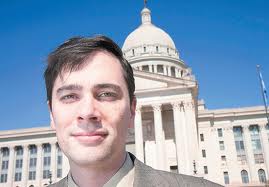“We have a LOT of travel! There are a lot of savings to be found in this area.”
I could hear the excitement in the voice of the State Purchasing Director as he made this statement. He enjoyed the opportunity to save money for taxpayers and he was tackling the unenviable chore of enticing higher education entities to join into a shared travel contract with the rest of state government.
This new contract would leverage the spending power of the two entities to drive down costs. In the future, when higher education and state employees needed to travel, they would potentially use the same contract and that would lower the cost of the travel — a cost paid by taxpayers.
The Central Purchasing (CP) Department had obviously analyzed past spend trends and they concluded that a “LOT” of travel was going on, with many savings opportunities to be had.
The Director was speaking my language; however, the contagiousness of his excitement was initially blunted by an inner conflict that invariably arises within me during these types of government modernization discussions.
I certainly didn’t want to discourage the director or his good work, so I resisted the temptation to respond: “We shouldn’t have a lot of travel. That’s a problem!”
As a taxpayer, I appreciated his hard work to save money and I admired his success. Years of experience and many lessons learned through the years had provided me with the knowledge that it’s not always an easy endeavor to entice Higher Ed into “playing nice” with the rest of state government.
Despite the opportunity for savings, CP’s analyses confirmed what I already knew: state and higher education spending on travel was out of control.
And it still is.
Several years ago, a brave whistleblower had explained to me one of the reasons for the inordinate level of state travel. State officials were being allowed to pay for travel tickets using their own credit, earn the points, and then be reimbursed by the state for the cost.
This of course tended to incentivize unnecessary travel. We quickly responded with legislation designed to move state travel off privately held credit cards and over to state-issued purchase cards that did not provide a personal benefit to the user.
This reform, coupled with the state’s important re-negotiation of a state purchasing card contract to include what is known as “level 3 spend data” are now allowing us to maintain an ongoing purview of travel spend.
Better still, as part of our transparency legislation, we mandated that these logs be made available to the public. You may review travel spend by navigating to data.ok.gov and searching for the term “purchase card.”
As you sort through the many purchases, you will quickly realize the absolute failure of the state’s tenuous fiscal position to disincentivize the millions of dollars spent on travel and related costs.
This year, as the legislative session commenced and Oklahoma’s politicians scrambled to increase the tax burden on Oklahomans, state officials were spending millions on travel — including thousands at Vegas casinos.
As one knowledgeable state government insider recently told me, “It isn’t their money and they aren’t motivated to do any work to start saving money.”
I feel that the government pandering of the current crop of state leaders has created a permissive and dangerous culture within state government, a culture that’s trending away from fiscal conservatism or doing right by the taxpayer.
It is unclear how tenuous the state’s fiscal position must become before state bureaucrats will give up their presumptive right to travel on the public dime; however, this I know: whenever Oklahoma’s politicians advance tax hikes such as their recent, unconscionable, new policy of double taxation on vehicle purchases and their attempted 35% increase in the state gas tax, they ensure that taxpayer-funded, unnecessary travel will likely remain a common practice.




make all travel cost posted on each politican, show who is wasting money